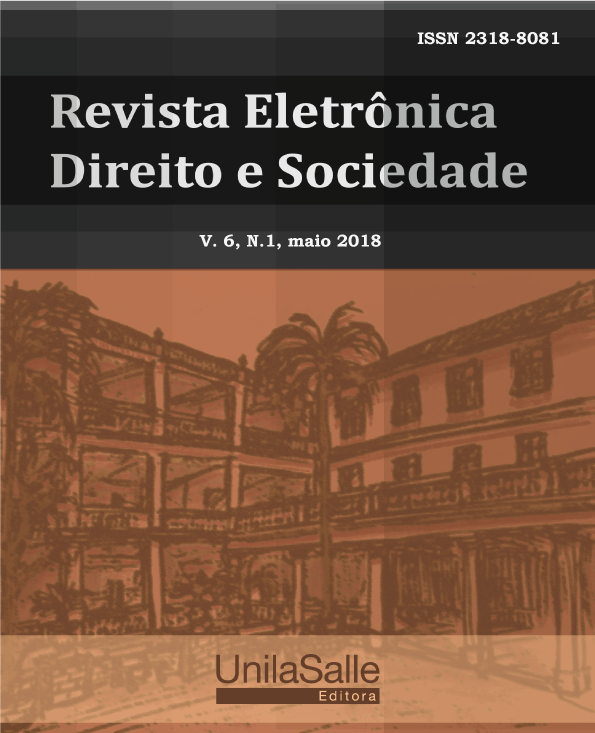Criminological thinking and the Recife’s Law School in the First Republic
DOI:
https://doi.org/10.18316/redes.v6i1.4272Keywords:
Criminological Thinking, Criminological Positivism, Positive School, Classic School, Legal Culture.Abstract
The present article aims to demonstrate how was the absorption and adhesion, in our criminal law culture, during the First Republic, focusing, more precisely, in the criminal law professors in the Recife’s Faculty of Law, of the criminological positivism, mainly Italian. The sources raised were the Criminal Law’s discipline programs and all texts published by the jurists analyzed. The research found that the absorption of criminological thinking was gradual but significant and that from a critical and resistant reading, such as can be identified in Tobias Barreto, a very receptive and even laudatory conception of the Italians Lombroso, Garofalo and Ferri, were accomplished, which inevitably left traces in the criminal legal culture of the time, a juridical culture that sought its identity and which, by great influence of the dichotomy created by Ferri Classical School X Positive School, intended to fit into one of the criminal science branches.
Downloads
Published
Issue
Section
License
Authors who submit their manuscripts for publication in the “REDES” Magazine agree to the following terms:
The authors claim to be aware that they retain copyright by giving “REDES” the right to publish.
The authors declare to be aware that the work submitted will be licensed under the Creative Commons Non-Commercial Attribution License which allows article sharing with acknowledgment of authorship and publication in this journal.
The authors declare to be aware that by virtue of the articles published in this journal have free public access.
The authors declare, under the penalty of the law, that the text is unpublished and original and that they are aware that plagiarism has been identified, plagiarized authors will be informed - willingly, to take legal action in the civil and criminal sphere - and, plagiarists will have their access to the magazine blocked.
The authors state that - in case of co-authoring - all contributed significantly to the research.
Authors are obliged to provide retractions and (or) corrections of errors in case of detection.
The authors are obliged not to publish the text submitted to “REDES” in another electronic journal (or not).
The Electronic Journal Law and Society - REDES - is licensed under a Creative Commons License. Attribution-NonCommercial 4.0 International.Based on work available at "http://revistas.unilasalle.edu.br/index.php/redes/about/submissions#copyrightNotice".
Permissions in addition to those granted under this license may be available at http://creativecommons.org/.

